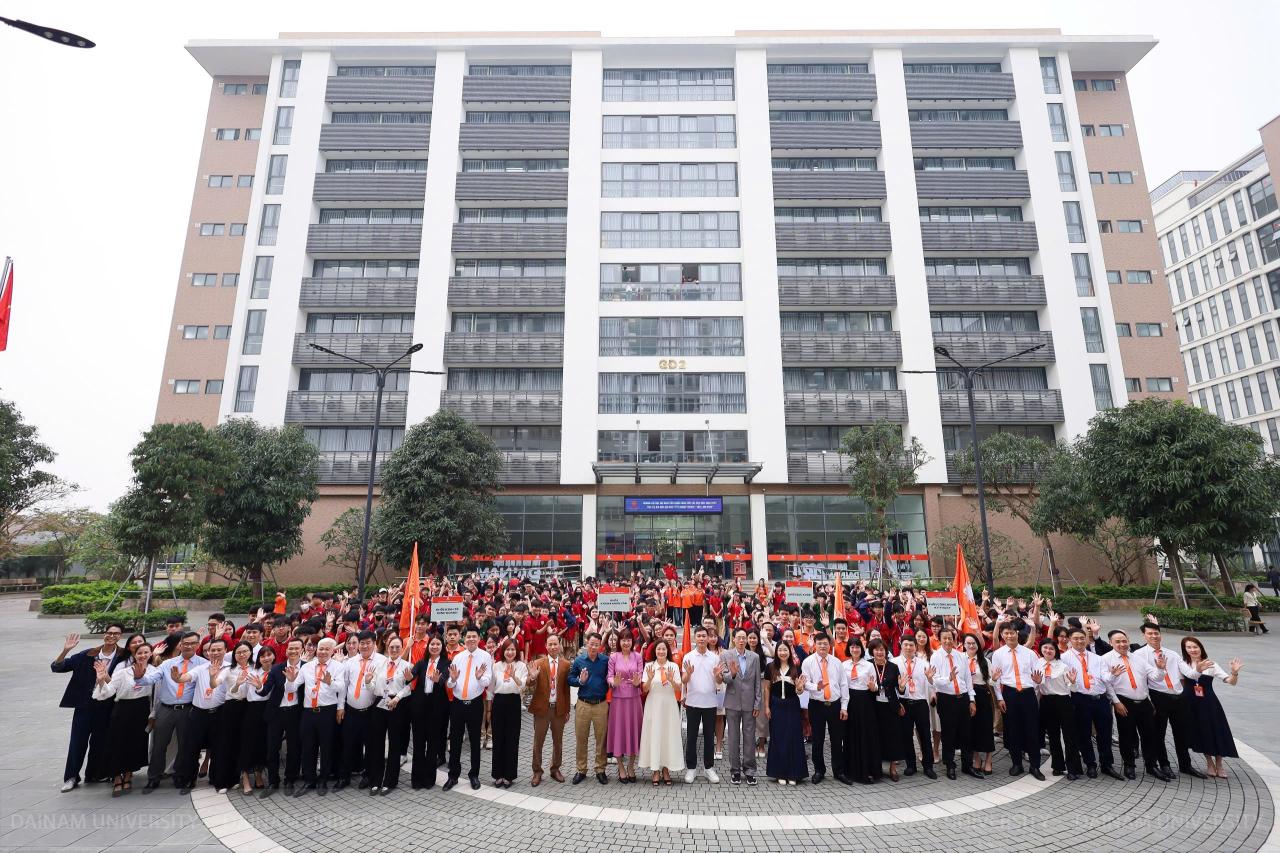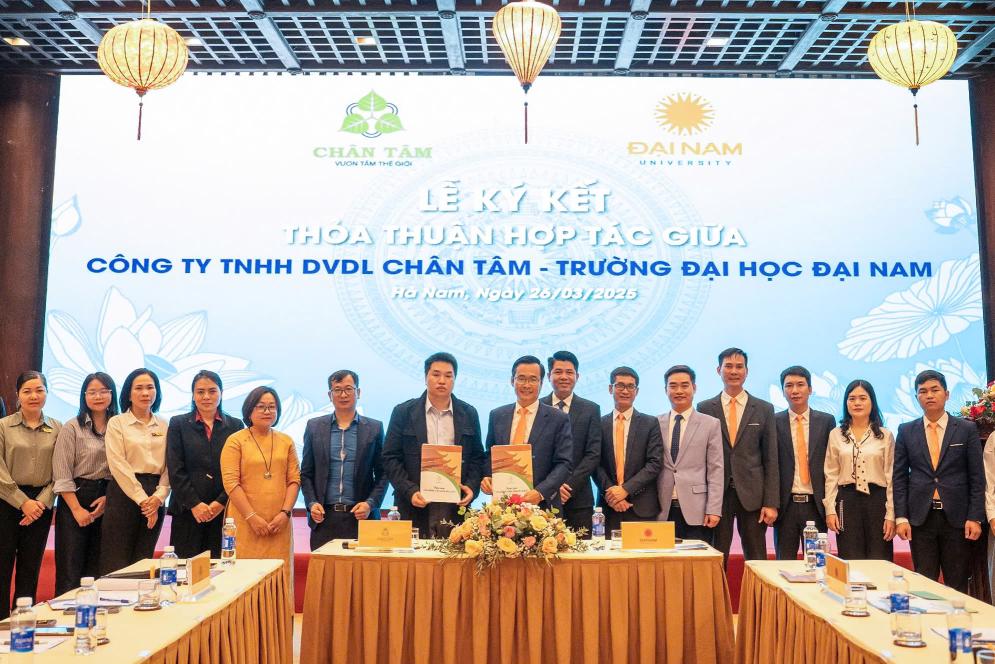Update new points of Circular 133/2016/TT-BTC - Guidance on small and medium-sized accounting regime replacing Decision 48/2006/TT-BTC
Posted date 14/03/2017
7.821 view

On August 26, 2016, the Ministry of Finance issued Circular 133/2016/TT-BTC guiding the Accounting Regime for Small and Medium Enterprises (SMEs) replacing Decision 48/2006/QD-BTC, which will be applied from July 1, 2017. In this article, the author will summarize the most prominent new points of Circular 133 compared to Decision 48 so that readers can update these contents in accounting work at enterprises.
Teacher: Tran Thi Hong Hue
Faculty of Accounting – Dai Nam University
.png)
On August 26, 2016, the Ministry of Finance issued Circular 133/2016/TT-BTC guiding the Accounting Regime for Small and Medium Enterprises (SMEs) replacing Decision 48/2006/QD-BTC, which will be applied from July 1, 2017. In this article, the author will summarize the most prominent new points of Circular 133 compared to Decision 48 so that readers can update these contents in accounting work at enterprises.
1. Innovation in policy approach
This Circular is approached with the spirit of giving priority to creating the most favorable conditions for businesses operating in accordance with the law, not creating binding regulations to prevent those who intentionally take advantage of the policy to commit fraud. Violations of the law are subject to legal sanctions.
2. Emphasize feasibility of application in business practice
This SME accounting regime is open, highly flexible, and promotes feasibility by offering many options for businesses, such as:
· The accounting regime mainly regulates level 1 accounts, only a few accounts are detailed to level 2, each account only reflects one content and does not have separate short-term and long-term accounts. Enterprises can detail and monitor short-term and long-term by themselves or open detailed accounts according to management requirements;
· Remove all mandatory requirements for accounting documents and books. SMEs will be able to build their own accounting documents and books to meet management and operational requirements in accordance with their specific operations as long as they meet the requirements of the Accounting Law;
· The accounting regime only stipulates accounting principles without specifying detailed accounting entries. By applying accounting principles, SMEs will be able to decide on accounting entries that best suit their document circulation process and habits as long as they present their financial statements in accordance with regulations;
· SMEs are free to choose the accounting currency when meeting the criteria of the Regulatory Regime;
· SMEs can decide whether or not to record revenue from internal transactions regardless of whether the issued documents are VAT invoices or internal delivery and warehouse receipts;
· It is allowed to self-regulate for dependent accounting units to record capital received from enterprises as liabilities or equity;
· Choose the financial statement form according to decreasing liquidity or distinguish between short-term and long-term according to tradition...
3. Separating accounting and tax, aiming to serve the needs of business management and operation
For the first time, the SME Accounting Regime has differences between revenue, expenses, accounting profit compared to taxable revenue (VAT, CIT), deductible expenses and taxable income.
1. Innovation in policy approach
This Circular is approached with the spirit of giving priority to creating the most favorable conditions for businesses operating in accordance with the law, not creating binding regulations to prevent those who intentionally take advantage of the policy to commit fraud. Violations of the law are subject to legal sanctions.
2. Emphasize feasibility of application in business practice
This SME accounting regime is open, highly flexible, and promotes feasibility by offering many options for businesses, such as:
· The accounting regime mainly regulates level 1 accounts, only a few accounts are detailed to level 2, each account only reflects one content and does not have separate short-term and long-term accounts. Enterprises can detail and monitor short-term and long-term by themselves or open detailed accounts according to management requirements;
· Remove all mandatory requirements for accounting documents and books. SMEs will be able to build their own accounting documents and books to meet management and operational requirements in accordance with their specific operations as long as they meet the requirements of the Accounting Law;
· The accounting regime only stipulates accounting principles without specifying detailed accounting entries. By applying accounting principles, SMEs will be able to decide on accounting entries that best suit their document circulation process and habits as long as they present their financial statements in accordance with regulations;
· SMEs are free to choose the accounting currency when meeting the criteria of the Regulatory Regime;
· SMEs can decide whether or not to record revenue from internal transactions regardless of whether the issued documents are VAT invoices or internal delivery and warehouse receipts;
· It is allowed to self-regulate for dependent accounting units to record capital received from enterprises as liabilities or equity;
· Choose the financial statement form according to decreasing liquidity or distinguish between short-term and long-term according to tradition...
3. Separating accounting and tax, aiming to serve the needs of business management and operation
For the first time, the SME Accounting Regime has differences between revenue, expenses, accounting profit compared to taxable revenue (VAT, CIT), deductible expenses and taxable income.
.png)
4. Accounting is not a story of Debt - Credit, it is necessary to separate the technique of recording in accounting books and the technique of presenting financial statements.
Information on financial statements must be honest, transparent and presented consistently, not just debit or credit entries.
5. Value the essence over the form and name of the transaction
This SME accounting regime will guide accountants to recognize transactions before applying accounting methods and this approach will make it easier for us to approach the Accounting Regime. Accounting methods depend on the nature of transactions and how transactions operate. Therefore, a good accountant is not someone who is good at Debt - Credit but someone who understands accounting principles, the nature of transactions and knows how to apply accounting principles appropriate to each transaction.
6. Closer approach to international practices and standards
Our economy is developing and increasingly integrating with the world economy. Therefore, Accounting Standards and Accounting Regimes must also approach international practices and Standards. This time, the SME Accounting Regime has included some contents of international practice such as recording revenue corresponding to performance obligations, assessing losses on loans and investment real estate, classifying trading securities and investments held to maturity, etc.
Information on financial statements must be honest, transparent and presented consistently, not just debit or credit entries.
5. Value the essence over the form and name of the transaction
This SME accounting regime will guide accountants to recognize transactions before applying accounting methods and this approach will make it easier for us to approach the Accounting Regime. Accounting methods depend on the nature of transactions and how transactions operate. Therefore, a good accountant is not someone who is good at Debt - Credit but someone who understands accounting principles, the nature of transactions and knows how to apply accounting principles appropriate to each transaction.
6. Closer approach to international practices and standards
Our economy is developing and increasingly integrating with the world economy. Therefore, Accounting Standards and Accounting Regimes must also approach international practices and Standards. This time, the SME Accounting Regime has included some contents of international practice such as recording revenue corresponding to performance obligations, assessing losses on loans and investment real estate, classifying trading securities and investments held to maturity, etc.
Latest article
View all Posts
Related articles
See all related Articles
Register for admission consultation 2025
Dai Nam University offers admissions to
36 academic programs
across a diverse range of disciplines, including Healthcare, Engineering and Technology, Economics and Business, and Social Sciences and Humanities.
Register now to secure
scholarships and tuition support worth up to 55 billion VND
scholarships and tuition support worth up to 55 billion VND

Register now to secure
scholarships and tuition support worth up to 55 billion VND
scholarships and tuition support worth up to 55 billion VND








